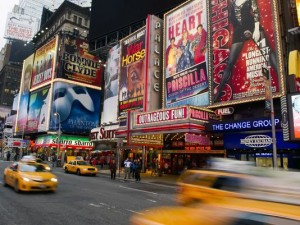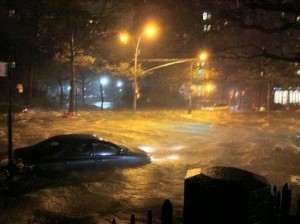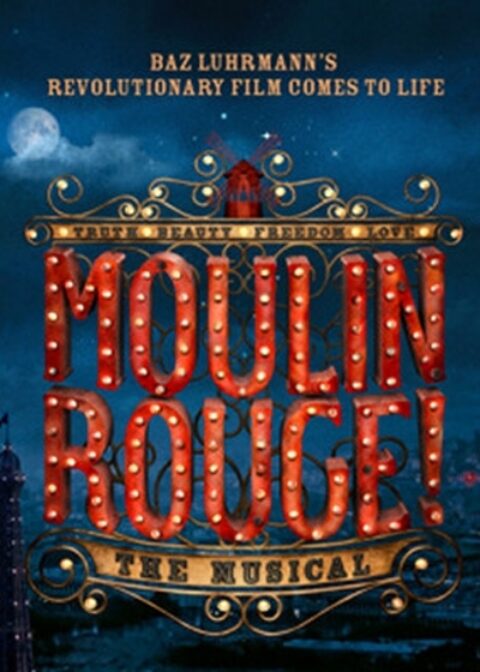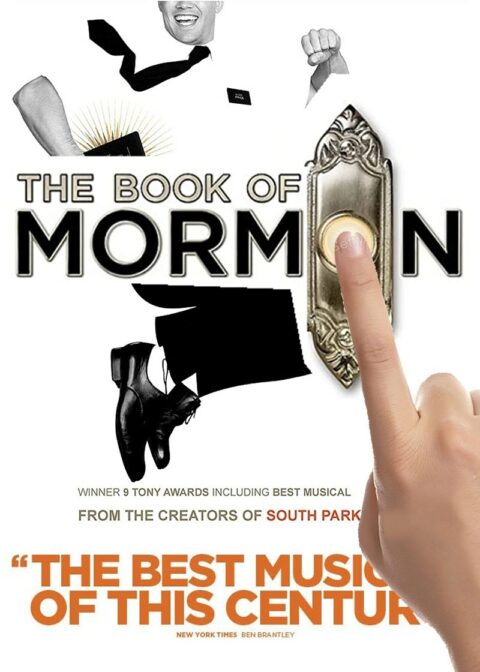Hurricane Sandy Was The Most Destructive Storm In Recent NYC History And It Significantly Affected Many Broadway Show Performances
Hurricane Sandy Floods Broadway

Hurricane Sandy, the most destructive storm of the 2012 Atlantic hurricane season, hit New York City on October 29, 2012. The Superstorm caused tremendous flooding to streets, subways, and tunnels, and 250,000 people living below 38th Street were left in total darkness for at least four days.
Beyond its impact on New York City, the storm affected the entire Eastern seaboard and 24 states in total, as well as at least seven countries, causing at least 286 deaths worldwide. It was also the second costliest hurricane in United States history, with damage amounting to approximately $65 billion.
Financial Impact On Broadway
This amount does not include the loss to the economy. The Broadway industry was hurt particularly badly. The storm struck in the middle of the fall season, when many shows were hoping to gain traction to take them through until the holiday season. Because of public transportation closures and the fact that most people did not even leave their homes throughout the duration of the storm, all performances on the evenings of Sunday, October 28, 2012 and Monday, October 29, 2012 were cancelled in anticipation of the storm.
It was later announced that all shows were also cancelled on Tuesday, October 30, 2012. Whereas the Sunday and Monday cancellations were not extremely severe, as Monday is Broadway’s traditional dark night and more shows have Sunday matinees than evening shows, the widespread cancellations on Tuesday evening caused a very serious financial blow to the Broadway economy.
Performances Scheduled To Resume Wednesday, October 31st, 2012
As a revival of Annie was running at the time, jokes were made that “the sun will come out tomorrow” as performances resumed up and down the theatre district. Many shows began to resume performances by Wednesday, October 31, 2012, both matinees and evenings, with the exception of Scandalous: The Life of Aimee Semple McPherson, Evita, The Lion King, Jersey Boys, and Mary Poppins.
Broadway did not resume its full operations until Thursday, November 1, 2012. In a mandate decided by the Broadway League, all tickets purchased for these performances were refunded in full, either through Ticketmaster or Telecharge, or at the point of purchase. This is an unusual move for an industry that generally upholds a strict no-refund policy, but The Broadway League is the official voice in such emergency situations as these.
Public Transportation Down

Even once the shows resumed, however, many producers felt the need to offer discount tickets to incentivize the purchase of tickets while public transportation was down. Some Broadway performers walked three hours to get to their shows, with some people walking from outer boroughs with wind gusts at 80 miles per hour.
Furthermore, some Broadway artists were living in the flood zones with mandatory evacuations. These individuals included the actor Stephen Kunken (Enron) and his wife Jenn Thompson, who along with their daughter lived in Red Hook, Brooklyn, one of the most affected areas.
"The Book Of Mormon" Remains Sold Out
Though the exact amount of the loss is unknowable, the data show a serious negative effect: in the week ending November 4, 2012, the entire Broadway industry grossed only $13.6 million, which was a decrease of $6.5 million from the previous week. Even successful musicals were hit, with Wicked losing $490,000 from the prior week and Nice Work If You Can Get It showing a loss of $538,000.
Still, The Book of Mormon was sold out as per usual, and the star-studded revival of Glengarry Glen Ross grossed an impressive $744,703, and yet it had to push its opening date back by almost a whole month.


